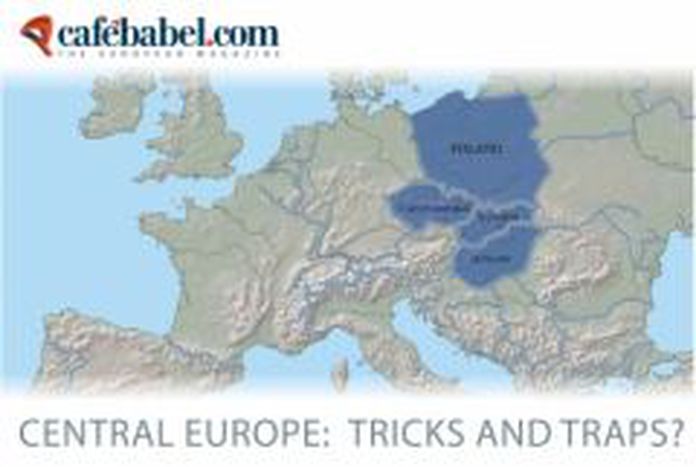
Tricks and Traps in Central Europe
Published on
Cafébabel Budapest took a risky decision by inviting high profile guests on 16th December 2006, in the pre-Christmas rush, to discuss and give answers to question of political instability, economic problems and disillusionment of EU membership recognised in Central European countries during the past period. The debate was organised in course of the Europe on the Ground project of cafebabel.
com, thus 5 journalists from all over Europe took part in the discussion as well.
The 2004 Enlargement was awaited with great expectations by most of the Central Europeans. Looking optimistically into the future, they were convinced that EU membership would boost the economy and bring political stability that would strengthen the democratic achievements. However, the past two and a half years did not bring about many things on the wish list, even on the contrary. Some of the states of the region face economic disorders, others political stability has weakened over this period, not to mention the ones struggling both with economic and political problems at the same time.
Political populism and extremism is on the rise, corruption is still firmly present at every level of the administration, economies are vegetating; what Central European states resemble today is rather a chaotic hub of problematic states than a prosperous region. Why is this U turn? Are we talking about a childhood flue of the infant democracies, or is it still the communist heritage that has its backlash-effects on these countries? Maybe, to find the veritable roots of the problem one has to dig even deeper than this.
January 2007, being the beginning of the new budgetary period of 2007-13, will mark an important step in the life of Hungary and the other "Visegrad-countries." External sources of a never seen volume will flow in to the government purse through the EU budget. The question arises: will these states be able to make use of these enormous sums effectively, converging their economies and the standard of living to the West European standards, given the political and economic status quo? Is there any chance that the political progress reaches the level of the old Member States?
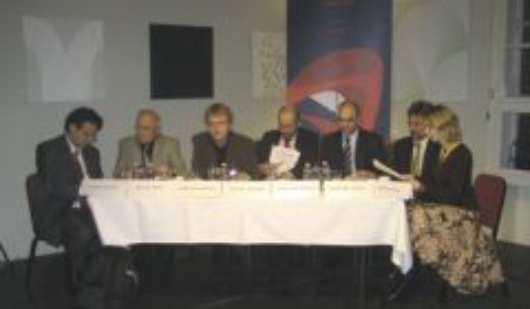 Cafebabel Budapest took a risky decision by inviting high profile guests on 16th December, in the pre-Christmas rush, to discuss and provide alternative answers to the above listed questions.
Cafebabel Budapest took a risky decision by inviting high profile guests on 16th December, in the pre-Christmas rush, to discuss and provide alternative answers to the above listed questions.
There was already a fair number of curious students, professors, intellectuals both Hungarians and foreigners in the tiny club of the Merlin theatre when Kálmán Mizsei, professor at the Central European University, addressed his opening speech to the public. Two and a half years after the so much wished accession the popularity and the backing of the EU membership has drastically fallen in the new Member States, especially in the Visegrad countries. What is the cause of this disenchantment? – wondered Mizsei. „Is it possible that this story is typically Central European?”
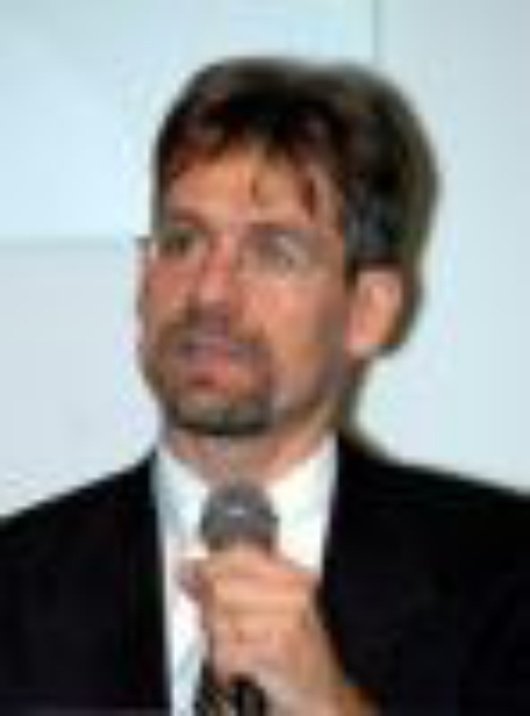 Ferenc Hörcher, reader at the Pázmány Péter Catholic University, investigated the reasons of the current crisis in Hungary. He asserted that the high tensions and every day confrontation in politics and the lack of a "common democratic minimum" amongst the political players are the most important components of today’s "moral crisis".
Ferenc Hörcher, reader at the Pázmány Péter Catholic University, investigated the reasons of the current crisis in Hungary. He asserted that the high tensions and every day confrontation in politics and the lack of a "common democratic minimum" amongst the political players are the most important components of today’s "moral crisis".
Péter Balázs, former EU commissioner pointed out that "political pluralism had practically no history in these countries at all". A completely new generation came on scene and they had to learn the rules of the new game: how to be on government and how to make politics in opposition.
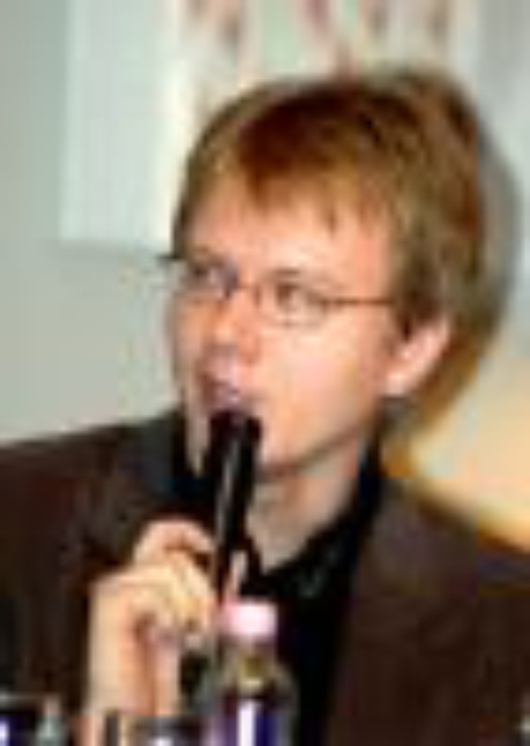 Miroslav Beblavy, director of the Slovak Government Institute, estimated that the Central European region is still on the way of transformation, which has not finished yet. We all have to bear the consequences of our troubled history for a long time, until the Visegrad countries become normalized, he concluded.
Miroslav Beblavy, director of the Slovak Government Institute, estimated that the Central European region is still on the way of transformation, which has not finished yet. We all have to bear the consequences of our troubled history for a long time, until the Visegrad countries become normalized, he concluded.
The participants are all agreed on one point, namely that, as numerous examples showed lately (e.g.: Italy, Belgium, France), there is no unique pattern to follow. ”It is obvious that the European social model is not a satisfactory solution for all countries, yet – even with its weak points – it is the only alternative EU can offer to the Central and East European countries – added Michael Mejstrík, professor of economy and finances at the Charles IV University in Prague.
Beblavy believes that the political situation in the Czech Republic and in Hungary is significantly different from that in Slovakia and in Poland. In the two former countries the political spectrum is reasonably solid, even too solid. The power is already divided up by the most influential political groups and it is not likely to change in the near future. The rigidity of the political system creates conflicts between the public opinion and the actions of the political elite, in particular concerning the economic and social changes.
Beblavy labelled Slovakia and Poland as the "rebels of the present". Voters turned their back on the EU-conform leaders and voted for populism. ”It is not the electoral will that has changed with the accession, but more likely the constraints of politicians” – he reasoned. Before the accession politicians like Fico or Kaczynski would probably not have allied with the forces they coalesced now. EU membership being achieved, they do not have to make uncomfortable compromises any more to meet the requirements of the West.
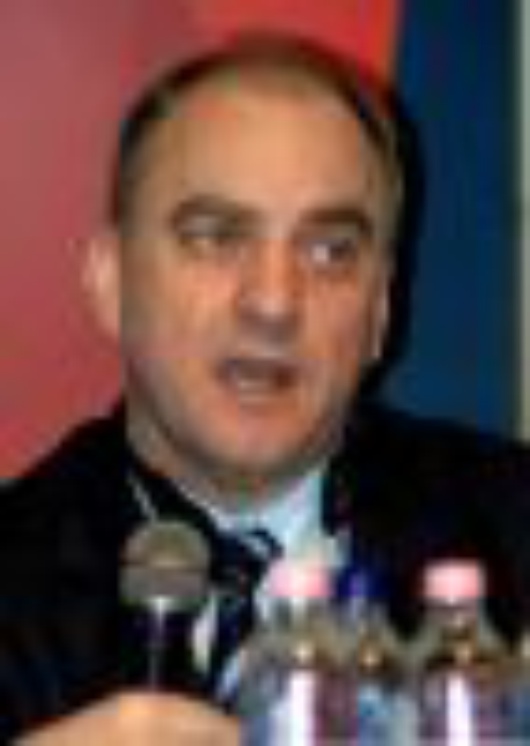 Jaroslaw Pietras, professor at the University of Warsaw, called the present situation a “period of exploration”, as the new Member States are still testing the limits of the possibilities available for them and trying to find their place in the European construct. “The situation is somewhat similar to the arrival of a new child to a family. Now matter how carefully it was prepared, it always takes some time until all the members accept the newcomer.”
Jaroslaw Pietras, professor at the University of Warsaw, called the present situation a “period of exploration”, as the new Member States are still testing the limits of the possibilities available for them and trying to find their place in the European construct. “The situation is somewhat similar to the arrival of a new child to a family. Now matter how carefully it was prepared, it always takes some time until all the members accept the newcomer.”
“It is not the financial gain that is the most important for Poland and the other newly joined states, but the possibility to take part in the decision making process of the Union. No decisions can be made in Europe without us any more.” – Pietras stressed. He also admitted that on the other hand, it is not so easy to defend one’s interest. This makes it sometimes inevitable to make use of extreme means of negotiation, like blocking minority or the right to veto.
All the guest speakers agreed on the fact that by joining a highly respected international community, the appreciation of the region has changed a lot in a positive direction, which is important not only to governments, but also to all players on the region’s market, including, above all, the biggest enterprises.
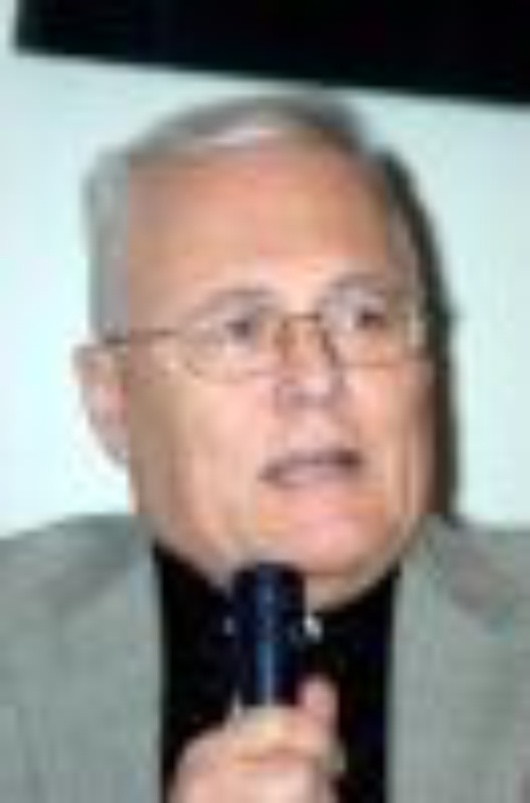 Péter Balázs went on to discuss the application of EU funds. “The economic transformation came as a natural disaster in the beginning of the ‘90s for our countries.” External help and private capital have eased the situation appreciably, yet the real inflow of financial aid will only start in 2007, almost twenty years after the “due date” of these sums. “It is a miracle that none of these countries went bankrupt in those twenty years” he commented.
Péter Balázs went on to discuss the application of EU funds. “The economic transformation came as a natural disaster in the beginning of the ‘90s for our countries.” External help and private capital have eased the situation appreciably, yet the real inflow of financial aid will only start in 2007, almost twenty years after the “due date” of these sums. “It is a miracle that none of these countries went bankrupt in those twenty years” he commented.
The positive consequence of the incoming funds is, according to Beblavy, “that we are able to realize projects we would not be able to do ourselves, like building roads and schools”. As a negative corollary, however, the Central Europeans can expect an even bigger corruption rate together with governments being more reluctant to implement the necessary reforms to keep certain regions profit from the structural funds. “Nevertheless, I am convinced that the balance of positive and negative effects will, at the end, be above zero.”
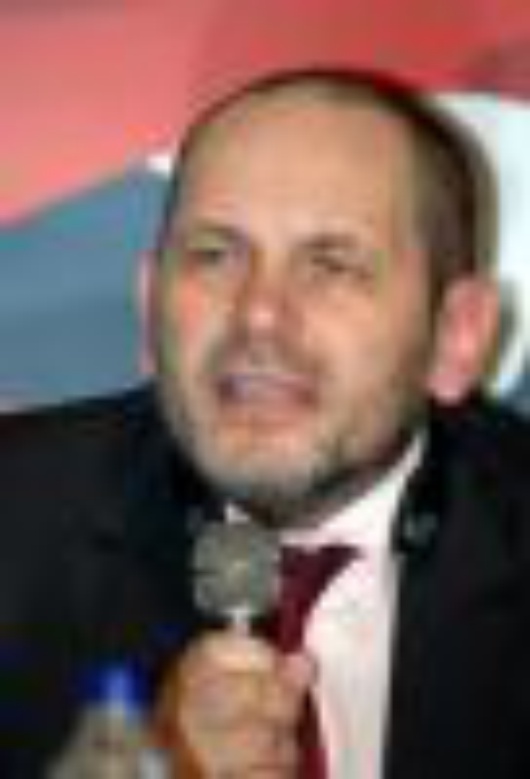 "Union funds, under certain circumstances, can have a disintegrating role as well”, Michal Mejstrík precised. “Enough to think about the common agricultural policy: the majority of the farmers in Central and Eastern Europe would be better off without the current, intervention-based and contra-competitive system. I truly believe that competition is always a better option than adopting ill-functioning models.”
"Union funds, under certain circumstances, can have a disintegrating role as well”, Michal Mejstrík precised. “Enough to think about the common agricultural policy: the majority of the farmers in Central and Eastern Europe would be better off without the current, intervention-based and contra-competitive system. I truly believe that competition is always a better option than adopting ill-functioning models.”
The problem with the funds is, Mejstrík continued, that people want immediate results and they want those results to be spectacular. But “the more aid we get, the less infrastructural development can be proportionally done. This makes people lose their faith in the system, which is why they get the more and more disenchanted from politics and this is how populism can gather ground in this part of Europe.”
The speakers further discussed about the different ways of application of the EU funds, mentioning the utmost importance of their effective use. Light was also shed on the pros and contras of the centralized and the de-centralized models of distribution as well as other economic issues, linked to the question.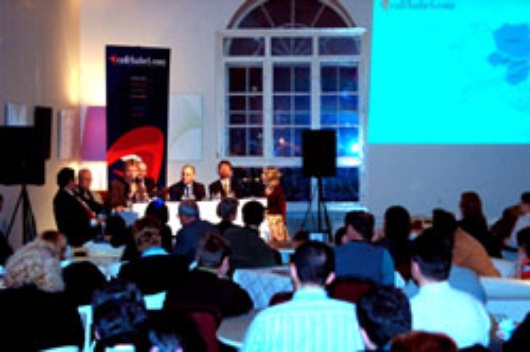
What transpired during the meeting is that there seems to be a common challenge the Visegrad Fours all have to face. It will be crucial for them to make good use of the money they can spend. They have to build up a rational and well-adapted institutional system, combat corruption successfully and introduce the necessary reforms. In other words: it is not just the quantity that will count but also, or even more importantly, the quality. Let’s hope they are going to avoid the traps.



